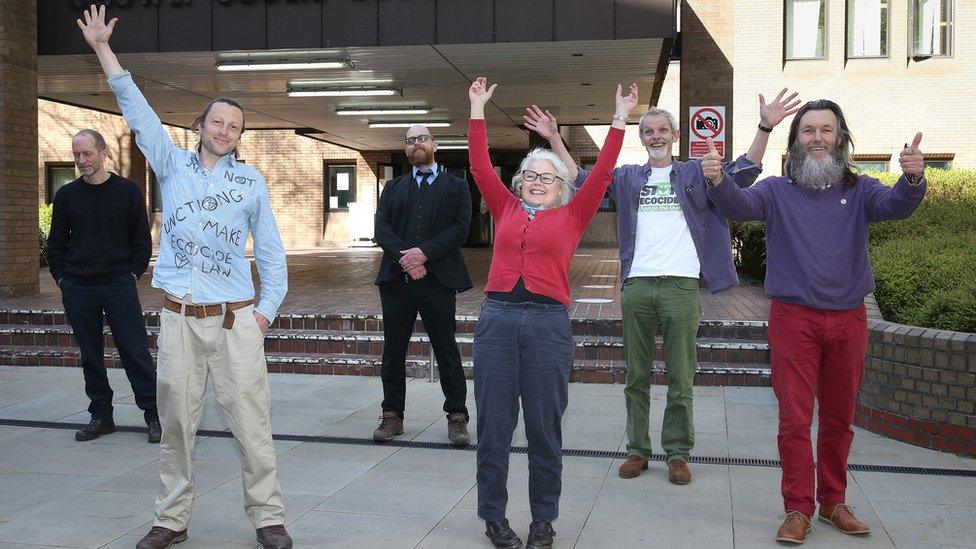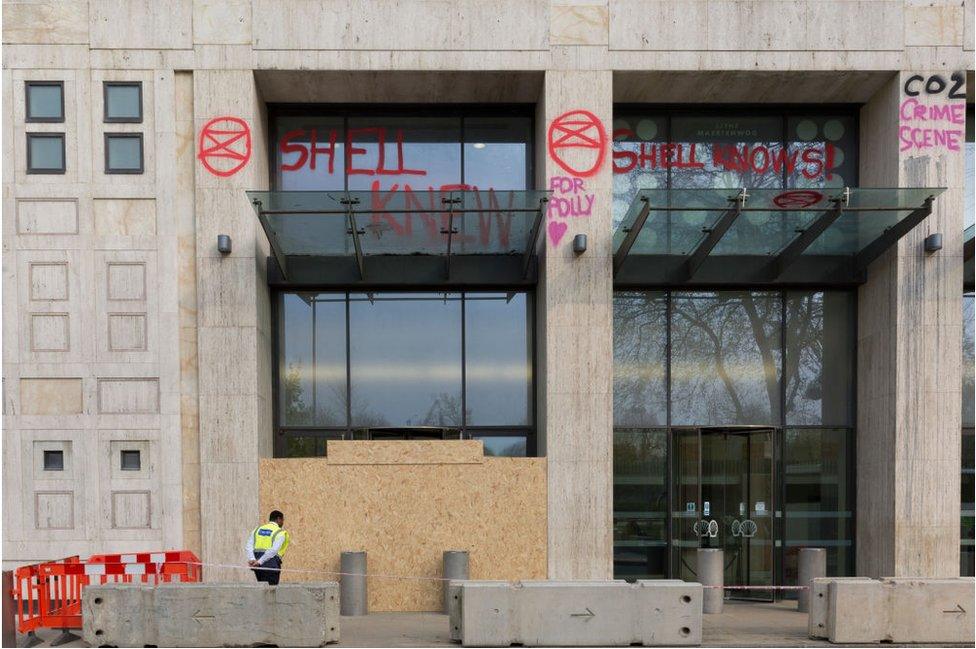Extinction Rebellion: Conditional discharge for Shell protest woman
- Published

Katerina Hasapopoulous glued herself to a door at the Shell Centre, a court heard
A climate activist who admitted causing criminal damage to Shell's London HQ has been given a conditional discharge days after her co-defendants were cleared of the charge.
Katerina Hasapopoulous, 43, glued herself to a door of the building in Belvedere Road on 15 April 2019.
The Extinction Rebellion (XR) member also spray painted the building.
The judge said the sentence would have been "different" had the others been found guilty by a jury.
The protest, which saw activists pour fake oil, break glass, climb on to a roof and spray graffiti, was said to have caused at least £15,000 of damage.
Two of Extinction Rebellion's co-founders, Simon Bramwell, 49, from Stroud, Gloucestershire and Ian Bray, 53, from Holmfirth, West Yorkshire, were acquitted of the same offences last week after a 10-day trial, alongside Jane Augsburger, 55, Senan Clifford, 60, David Lambert, 62, and James "Sid" Saunders, 41, also from Stroud.

Six defendants were acquitted of criminal damage at Shell's London HQ
They were found not guilty despite them admitting causing the damage and Judge Gregory Perrins directing the jury that they had no defence in law.
Hasapopoulous, also from Stroud, was sentenced at Southwark Crown Court to a six-month conditional discharge for criminal damage and having an article with intent to cause criminal damage.
The judge said: "Had they [co-defenders] been found guilty you would have been sentenced alongside them and would have received a different sentence to the one you are going to receive today.
"However, it seems to me that it would risk real unfairness to punish you for an offence in circumstances where the jury found each of your co-defendants not guilty, notwithstanding the fact that they had each admitted the offence and had no defence to the charges."

Graffiti was left on Shell's London headquarters in April 2019
During the trial, the activists told the court they targeted the Shell building because the oil giant was directly contributing to climate change, causing serious injury and death, and argued it was a "necessary" and "proportionate" response to the harm being caused.
In his sentencing remarks, the judge also told Hasapopoulous: "The only reason I am dealing with you so leniently is to achieve some degree of parity with your co-defendants.
"It should not be taken as any indication that any further cases of this nature will necessarily be dealt with in the same way or that the court takes the view that offences of this sort do not merit greater punishment.
"That would be a mischaracterisation of what has happened today."
Related topics
- Published23 April 2021

- Published16 April 2019
